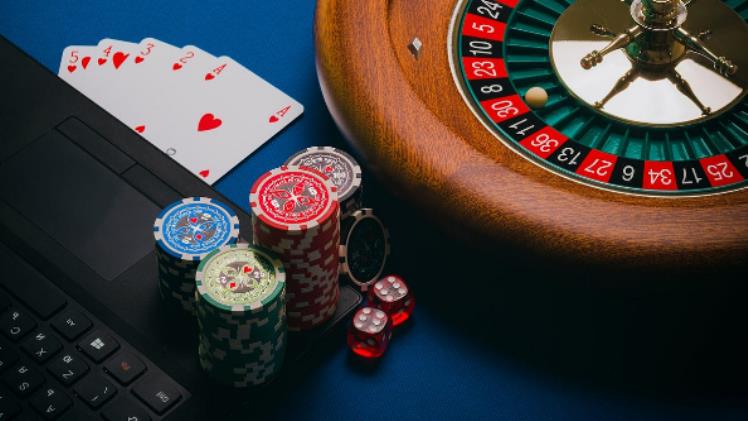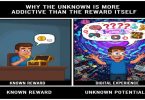How the brain reacts to wins and near‑misses
Imagine you’re playing a slot or spinning a wheel. You see two matching symbols, and the third one hovers just shy of alignment—and boom: instant surge of excitement. Even without a win, that sensation—known as a “near‑miss”—fires up the brain’s reward circuits almost as strongly as victory. Cambridge research using brain scans found that near‑misses evoke dopamine release in both casual and problem gamblers, with an even stronger response in those with gambling issues. These close calls feed into an illusion of preparation or momentum, making players want to go again.
Casinos exploit this psychological hook: with flashy animations, cheerful tones, and near‑miss sequences baked into games, designers keep the tension high and motivation alive—even without a payout. This effect is especially noticeable on platforms Super88, where visual and auditory cues are fine-tuned to sustain player engagement across different game types.
The role of dopamine and reward systems in gambling
Gambling taps directly into the brain’s chemical reward machinery. Anticipation alone triggers dopamine surges—creating that electric feeling in your chest before the outcome. As you keep playing, your brain begins to expect more stimulation to achieve the same high, prompting bigger bets or longer sessions—echoing a pattern seen in substance addiction .
Even in animal studies—so‑called “rat casinos”—sound and light combined triggered risky choices in rodents. This suggests our brains are hard‑wired to respond to the casino environment, whether we’re critters in a lab or humans in bright, polished gambling halls.
High rollers prefer non Gamstop casinos because of their generous VIP and loyalty programs. These often include cashback offers, personal account managers, and exclusive promotions designed to reward frequent players with greater benefits.
Why randomness keeps players hooked
Uncertainty is thrilling. If your first two turns lose, the next one might be the jackpot. That unpredictability keeps your mind hooked, hoping even a small win could come next. It’s the psychology behind lottery tickets and scratch‑cards: the fact you might win—even just rarely—is enough to keep you playing.
Cognitive biases that trick gamblers
The gambler’s fallacy: Why we believe in “due” wins
If black has come up more times than usual, many assume red is “overdue.” But every spin is fresh and independent. This misplaced belief in correction fuels misguided decisions, like increasing your bets assuming a win is around the corner. That’s gambler’s fallacy at work—turning randomness into a story.
Illusion of control: Superstitions and lucky rituals
Ever catch someone tapping their card or whispering to the cards before a hand? That’s the illusion of control: believing your ritual will influence chance. It’s comforting—makes you feel part of the outcome—despite being purely symbolic. Casinos and Martingale Bahis Stratejisi Tablosu treat this as gold, offering small wins and themed machines that coax this behavior.
How casinos use lighting, sounds, and layouts to influence behavior
Casinos are literally designed to influence how you feel. Bright, cheerful lamps and sounds of “coins dropping” give the sense of constant reward. Layouts are often maze‑like, gently confusing, so you never feel ready to leave. They coat the air with vanilla or floral scents—creating a relaxed, inviting mood.
Research into “neuroarchitecture” shows these design choices shape behavior, nudging customers to stay longer and feel welcomed. For instance, Wynn Resorts uses daylight and lush décor to evoke comfort, slowing players’ perception of time and increasing their willingness to play.
The house always wins: Understanding casino odds
How game design ensures long‑term profit for casinos
Every casino game has a tiny advantage baked in. It’s not designed to bankrupt you quickly—it earns bit by bit over many plays. Whether you’re betting in live casinos or online, the math ensures the house comes out ahead over time.
Comparing house edges in slots, blackjack, roulette, and poker
Some games give players better odds than others. Strategy games like blackjack, video poker, and baccarat tend to be less tilted in the house’s favor than slots or roulette. That said, many players choose slots for their simplicity and entertainment value, despite the higher likelihood of loss. Knowledge is power: pick games where your skill or strategy can make more of an impact.
Why “hot streaks” are usually just variance
We love drama. A streak of wins feels meaningful—but it’s nearly always an echo of randomness. Thinking you’re riding luck can distort choices: we bet more, we risk more, and soon enough that streak ends. But by then, our mindset often leads to chasing losses, trying to “beat” the system.
Playing smarter: Strategies to reduce losses
Bankroll management: Setting limits and sticking to them
A winning mindset starts with preparation. Decide in advance, “I’m okay spending this much,” and leave your wallet in the room or set an app limit. Divide your session into chunks—think “two hours max” or “no more than $300.” Treat it like going out to dinner: you accept the cost but don’t go overboard.
Choosing games with better player odds
Smart players gravitate to low‑house‑advantage games: blackjack (with basic strategy), video poker, baccarat, or craps. These aren’t flashy, but they let you stretch your bankroll further. If you prefer slots or roulette, go for machines or online games that show their RTP (return to player) values—choose the ones that give you more playtime for your money.
When to walk away: Recognizing emotional vs. rational play
Are you playing to relax, or playing to reclaim losses? Anxiety, anger, chasing—it’s easy to end up in emotional gambling. If you feel those, pause. Stretch your legs, get fresh air, review your time and money spent. External triggers—alarms, timers, or support from a friend—can help reset focus.
Mind over money: Psychological tricks to stay disciplined
How to avoid chasing losses (the sunk cost fallacy)
You’ve lost money—that’s it. The next bet deserves the same scrutiny as the first. There’s no statistical recovery waiting based on a prior investment. Spot the sunk‑cost trap, then step away or stop playing once you’ve reached your own limit.
The importance of treating gambling as entertainment, not income
See it as leisure—a movie, a night out, a game with friends. That mindset shifts expectations. If you don’t bring back any money, but you had a fun evening—that’s not a loss. ROI isn’t just measured in dollars, but in how much fun or relaxation you got.
Self‑exclusion tools and setting time limits
Many online casinos offer “cool‑off” buttons, loss caps, and self‑exclusion options. Use them. Also, your phone timer or a friend’s reminder can be your ally. The environment is built to entice—your intentions matter most.
Bringing the narrative to life
Let me tell you about Alex, who heads to a friendly local casino after work. He starts with slots, plays for a bit, then switches to video poker feeling more strategic. Soon he’s on a streak, and though he’s still playing within his budget, his heartbeat quickens. He starts betting larger, chasing a feeling more than a win. Much like the experience many describe on platforms Slot Gacor, where momentum can shift rapidly, Alex finds himself immersed. After a final loss, he hears the nearby bar closing and realizes he’s spent over three hours without a break. He steps outside, feeling a mix of relief and pride—relief that he’s done, pride that he recognized the signs. He goes home with less cash, but more self‑awareness.
That story shows how awareness of emotions and self‑control can close the gap between influence and intention.
Casino psychology isn’t just science—it’s an art. It’s about dopamine, design, and decision-making biases working in concert. But understanding it empowers you. You can enjoy gambling responsibly—knowing the house has advantages, but you’re in control of your choices.
Here’s your toolkit:
- Decide your bankroll before you play.
- Pick games with better odds and strategy potential.
- Notice emotional triggers and step away when needed.
- Treat gambling as entertainment, not a financial plan.
- Use tools like loss limits, time caps, and self‑exclusion.








Leave a Comment